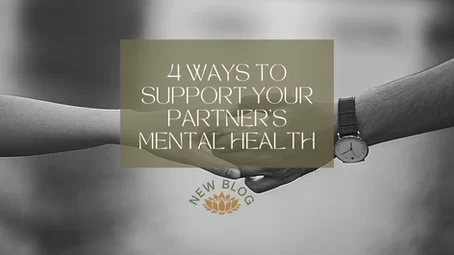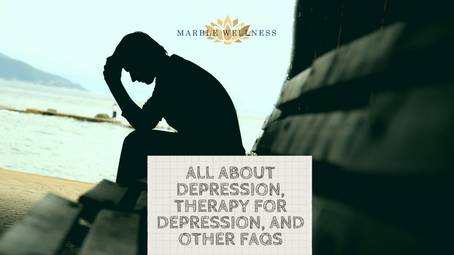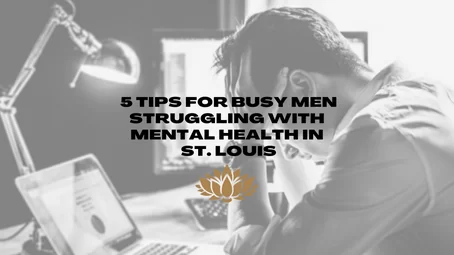Throughout the course of individual therapy, it is so common for relationship issues to be addressed, even if the relationship isn’t necessarily undergoing a major stressor or challenging stage.
As an individual therapist, I frequently hear “my partner is so <insert hard emotional state here> and I just don’t know what to do to help them feel better.”
Or perhaps it’s a statement that carries more of a burden of responsibility. “But shouldn’t I go ahead and <insert action item here> to help them get better?”
Certainly these conversations come up with our couples’ therapist in his sessions.
It’s hard work to figure out the line between taking responsibility for your partner’s mental health and supporting your partner’s mental health, without burdening yourself with the action items and outcomes around that.

It’s interesting to hear people’s logic behind why they think they “should” do something….and can often reveal some places we can address building healthier boundaries; increasing effective communication skills; clarifying their own needs; definitely resolving some people-pleasing tendencies; and the like.
But it still begs a question: How is it a partner’s responsibility to pay attention to their significant other’s mental health?
And here’s my answer:
I’d caution people from assuming responsibility for the mental health of others. That can lead to codependency and enmeshment, which are unhealthy ways of being in a relationship and can create a lot of problematic interactions and lead to a lot of harm.
That said, if you have healthy boundaries around mental and emotional health and knows how to support your partner’s mental health…that is awesome! Your role there can sometimes be about detecting signs of stress or anxiety or depression a little earlier than what individuals can typically do on their own. Also, you might be able to help your partner anticipate challenges and prepare them to have a coping strategy ready. You can reflect back to your significant other patterns and triggers that are adaptive or maladaptive.
But the key word here is support: you should be in a supporting/supportive role–an additional bolster, not someone who takes on the action steps for caring for your partner’s mental health first and foremost.
So how do you do that exactly? Read on!
4 Ways to Check In on Your Partner’s Mental Health
1. Create a space for mental health conversations to exist at all. Just as you would ask “how did your day go?” and expect to hear about happenings at the water cooler (or tech issues in this pandemic age!), start to create a relationship where “how are you feeling?” is just as common of a conversation. This will make it smoother to have conversations when mental health isn’t at its prime.
2. Be honest in reflections of your partners’ behaviors and words. It’s okay to say “I notice you seem to be sleeping less lately. What’s going on for you?” or “I know you’ve had a lot going on at work lately. I can tell you’re out of sorts. Anything I can do to help?” Reflecting back behavior in a transparent (but still gentle!) way can lay the groundwork for expressing concern about poorer mental health but can also make it more likely your partner will engage with you about what’s going. It may also help them build awareness of how they are when they are stressed, or sad, or something else and allow them to take positive steps from there.
Plus, there is often a feeling of “wow, I feel so seen” on the part of the person receiving these observations, particularly when done through effective and empathetic communication, that can have such a positive impact on the relationship overall.

3. Share your own mental health journey and insights naturally in your relationship. If you talk about, and therefore normalize, what steps you’re taking to pay attention to and care for your own mental health, it is likely going to have an impact on your partner. It may inspire them to start considering what changes they can make in their own mental health hygiene practices, or just even bring some basic awareness to them about moods and emotions. Awareness is such a critical piece of mental health that even that alone can lead to positive outcomes!
4. Encourage self-care. From your basics like exercise and healthy eating becoming part of what you guys talk about, go the next step and when someone is stressed or just has had a hard time recently, suggest a more indulgent self-care activity. Just knowing someone is paying attention can reduce symptoms of stress, sadness, depression, anxiety, etc….even if only for a little while!

Try making these changes in your relationship over the next few weeks and see what happens. Hopefully, both you and your partner can experience a positive impact from you being in a healthy and active support role, instead of completely in the backseat OR in the driver’s seat for their mental health. Remember, if you take the control role, it won’t be healthy for you or your partner, or sustainable in the long-run. Implementing, however, these small and easy steps can create a viable longevity in your relationship, your health, and your partner’s health.
Talk to you soon!
Start Therapy for Mental Health in St. Louis
If you live in St. Louis and are ready to improve your mental health, we are here to help.
Contact Us!

Additional Counseling Services at Marble Wellness in St. Louis, MO and Chicago, IL
Counseling services designed to help set you on a path of living a more fulfilled, calm, and happy life.
St. Louis
Our St. Louis team of therapists have a variety of training backgrounds and areas of expertise. We specialize in anxiety, depression, grief, chronic illness, therapy for men, couples, and maternal overwhelm. We can also help new moms with various postpartum concerns, moms in the thick of parenting, and moms with teens. We can also chat from wherever you are in the state with online therapy in Missouri and online therapy in Illinois. No matter where you are in your journey, we would love to support you.
Chicago
Our Chicago team of therapists offer a wide range of mental health services to help our clients through the different challenges and hurdles in their life. In addition to anxiety, depression, grief, therapy for men, and maternal overwhelm, we are specialized in professional burnout, therapy for breakups, and love partnering with working moms.



